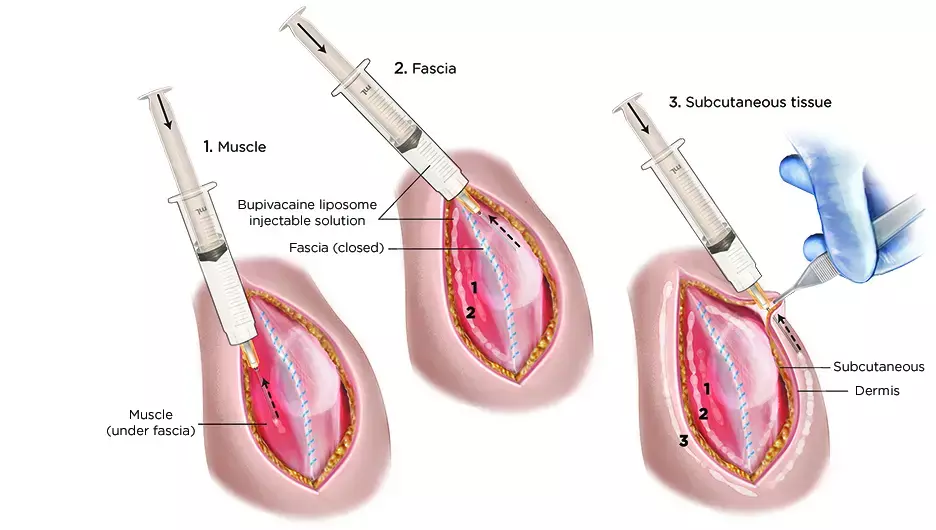- Home
- Medical news & Guidelines
- Anesthesiology
- Cardiology and CTVS
- Critical Care
- Dentistry
- Dermatology
- Diabetes and Endocrinology
- ENT
- Gastroenterology
- Medicine
- Nephrology
- Neurology
- Obstretics-Gynaecology
- Oncology
- Ophthalmology
- Orthopaedics
- Pediatrics-Neonatology
- Psychiatry
- Pulmonology
- Radiology
- Surgery
- Urology
- Laboratory Medicine
- Diet
- Nursing
- Paramedical
- Physiotherapy
- Health news
- Fact Check
- Bone Health Fact Check
- Brain Health Fact Check
- Cancer Related Fact Check
- Child Care Fact Check
- Dental and oral health fact check
- Diabetes and metabolic health fact check
- Diet and Nutrition Fact Check
- Eye and ENT Care Fact Check
- Fitness fact check
- Gut health fact check
- Heart health fact check
- Kidney health fact check
- Medical education fact check
- Men's health fact check
- Respiratory fact check
- Skin and hair care fact check
- Vaccine and Immunization fact check
- Women's health fact check
- AYUSH
- State News
- Andaman and Nicobar Islands
- Andhra Pradesh
- Arunachal Pradesh
- Assam
- Bihar
- Chandigarh
- Chattisgarh
- Dadra and Nagar Haveli
- Daman and Diu
- Delhi
- Goa
- Gujarat
- Haryana
- Himachal Pradesh
- Jammu & Kashmir
- Jharkhand
- Karnataka
- Kerala
- Ladakh
- Lakshadweep
- Madhya Pradesh
- Maharashtra
- Manipur
- Meghalaya
- Mizoram
- Nagaland
- Odisha
- Puducherry
- Punjab
- Rajasthan
- Sikkim
- Tamil Nadu
- Telangana
- Tripura
- Uttar Pradesh
- Uttrakhand
- West Bengal
- Medical Education
- Industry
Is Postoperative Pain After Abdominal Wall Reconstruction Better Managed with Liposomal Bupivacaine?

U.S.A.: According to a research study published in Annals of Surgery, there were no obvious clinical advantages to employing liposomal bupivacaine transversus abdominis plane block for postoperative pain control following open abdominal wall reconstruction.
Postoperative discomfort can have a big effect on how comfortable the patient is with their life in general. The best acute pain management practices, according to the literature, may also have an impact on whether or not post-operative chronic pain develops. Although liposomal bupivacaine is frequently used to block the transversus abdominis plane, there is little research to support its usage in open abdominal wall restoration.
The authors of this study predicted that, compared to placebo, liposomal bupivacaine plane block would reduce the need for opioids in the first 72 hours following surgery.
To achieve this goal, a single-center, double-blind, placebo-controlled prospective trial was carried out between July 2018 and November 2019. Patients who underwent open, elective, ventral hernia repairs with mesh positioned in the retromuscular position and who were adults (at least 18 years of age) were included in the study. Patients were randomly assigned to receive a liposomal, simple, or saline transversus abdominis plane block from the surgeon (placebo). The main result was the amount of opioids needed in the first 72 hours following surgery. The total amount of inpatient opioid use, pain scores calculated using a 100 mm visual analog scale, hospital stay duration, and patient-reported quality of life were considered secondary outcomes. 52 individuals received a placebo, 55 patients received basic bupivacaine, and 57 patients received liposomal bupivacaine out of the 164 patients who were included in the analysis.
Key findings of the research:
- When liposomal bupivacaine was compared to simple bupivacaine and placebo, there were no changes in the total opioid used in the first 72 hours following surgery as determined by morphine milligram equivalents (325 225 vs. 350 284 vs. 310 272, respectively, P = 0.725).
- Overall inpatient opioid use, pain levels, duration of stay, and patient-reported quality of life did not differ from one another.
The authors concluded that when compared to basic bupivacaine and placebo for open abdominal wall reconstruction, utilizing liposomal bupivacaine transversus abdominis plane block did not appear to provide any clinical advantages.
REFERENCE
Fafaj, Aldo MD*; Krpata, David M. MD*; Petro, Clayton C. MD*; Prabhu, Ajita S. MD, FACS*; Rosenblatt, Steven MD*; Tastaldi, Luciano MD†; Alkhatib, Hemasat MD*; Tu, Chao MS‡; Zolin, Samuel J. MD*; Thomas, Jonah D. MS*; Costanzo, Adele M. RN*; Rosen, Michael J. MD, FACS*. The Efficacy of Liposomal Bupivacaine on Postoperative Pain Following Abdominal Wall Reconstruction: A Randomized, Double-blind, Placebo-controlled Trial. Annals of Surgery: August 2022 - Volume 276 - Issue 2 - p 224-232 doi: 10.1097/SLA.0000000000004424
Dr Kamal Kant Kohli-MBBS, DTCD- a chest specialist with more than 30 years of practice and a flair for writing clinical articles, Dr Kamal Kant Kohli joined Medical Dialogues as a Chief Editor of Medical News. Besides writing articles, as an editor, he proofreads and verifies all the medical content published on Medical Dialogues including those coming from journals, studies,medical conferences,guidelines etc. Email: drkohli@medicaldialogues.in. Contact no. 011-43720751


